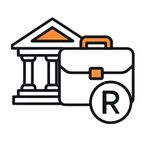
Running a small business in South Africa involves a number of financial and operational risks, many of which can be unpredictable or outside your control. From accidental damage to client disputes or staff-related issues, these risks can quickly lead to substantial costs if not properly managed. Business insurance offers essential protection against these challenges, helping to reduce the financial strain of claims, interruptions, or liabilities.
Key Takeaways
- Business Insurance Is a Financial Safety Net: Small businesses in South Africa face risks such as legal claims, accidents, or property damage. Having the right insurance in place helps protect operations, assets, and employees from unexpected disruptions.
- Some Insurance Types Are Mandatory: Employers must register for Workers’ Compensation (COIDA) and the Unemployment Insurance Fund (UIF). These are required by law and ensure employee benefits and legal compliance.
- Insurance Should Match Your Business Needs: From public liability to contents, building, or professional indemnity cover, selecting policies based on your business activities is essential. Regular policy reviews are recommended as the business grows.
About Arcadia Finance
Get your loan quickly and easily with Arcadia Finance. Pay no application fees and choose from 19 trusted lenders, all registered with South Africa’s National Credit Regulator. Enjoy a smooth process with reliable options that fit your financial goals.
What Is Business Insurance?
South Africa is home to hundreds of thousands of small businesses, with new entrepreneurs entering the sector each year. Regardless of whether a person operates in food and beverage, real estate, or administrative services, every business owner faces the potential for unexpected events or losses and must take steps to manage those risks.
While small businesses may differ in size, sector, or structure, they all share a common vulnerability to incidents and claims that could disrupt operations. From the start, a business must be prepared for the financial consequences of unforeseen disruptions, whether caused by accidents, legal liabilities, or property damage.
Business insurance serves as a critical safeguard against unexpected setbacks. It includes cover for public liability and employer liability, specifically structured to protect your company, assets, and workforce. This protection helps to reduce the financial impact of events that could otherwise cause significant operational and financial strain.

Different Types of Business Insurance
Each business has its own specific risks and operational environment, so the type of insurance cover required will vary depending on individual circumstances.
As your business grows, your insurance needs are likely to change as well. Regularly reviewing your policies will ensure that your business remains protected as it expands. There are several types of insurance, and selecting the right combination is essential for maintaining coverage against various risks.
Public Liability Insurance
Public Liability Insurance is intended to protect your business if someone is injured, or if their property is damaged, due to actions related to your business. This includes incidents involving clients, the public, or suppliers.
It is one of the most widely used forms of business insurance, particularly relevant to businesses that operate in public-facing environments or interact regularly with third parties.
Contents Insurance
Contents Insurance covers the physical items within your business premises, including office furniture, tools, inventory, machinery, and other equipment. This type of insurance is especially useful for businesses with valuable internal assets.
Buildings Insurance
Buildings Insurance provides financial cover for repairing or rebuilding the business premises following events such as fires, storms, explosions, or lightning. This insurance is vital if your business owns or operates from physical premises or rents out such a space.
Portable Possessions Insurance
Also known as Business All Risks Insurance, this type of cover protects against loss or damage to portable work-related items. These can include laptops, tools, phones, and other equipment. Unusual or high-value items, such as artwork, musical instruments, or temporary structures like marquees, can also be insured.
Business Interruption Insurance
Business Interruption Insurance offers protection against loss of income or additional operational costs caused by events like fire or structural damage.
This type of policy is designed to help your business continue meeting financial obligations, such as staff wages or rental payments, while operations are disrupted.
If your business cannot operate for a few weeks due to an incident, and this would result in significant financial difficulty, then Business Interruption Insurance is strongly recommended.
Professional Indemnity Insurance
Professional Indemnity Insurance protects your business if a client suffers financial loss due to negligence, error, or omission in the professional service or advice you provided.
This policy also covers legal costs associated with defending such claims, which can be substantial even if you are not found to be at fault.
Typical examples of claims under Professional Indemnity Insurance include:
- Providing an incorrect medical treatment or diagnosis
- Giving inaccurate advice
- Errors in calculation, analysis, or estimation

Mandatory Business Insurance in South Africa
Workers’ Compensation (COIDA)
Under the Compensation for Occupational Injuries and Diseases Act (COIDA, Act 130 of 1993), every employer who hires one or more staff members is required to register with the Compensation Fund or an authorised mutual association. This registration must be completed within seven days of hiring an employee.
COIDA provides no‑fault compensation to employees who are injured on duty or who develop occupational diseases. It also offers benefits to dependants in the event of a fatal workplace incident. While this cover protects employers from civil claims for most workplace injuries, it does not apply to situations involving employer negligence. For those circumstances, Employer’s Liability Insurance is often taken as an additional form of protection to cover potential legal costs.
Employers who fail to register with the Compensation Fund may be in breach of the law. This can result in the rejection of claims and the inability to obtain a Letter of Good Standing, which is frequently required when applying for government contracts or tenders.
Unemployment Insurance Fund (UIF)
Any employer who pays remuneration to a staff member working more than 24 hours per month must register with the Unemployment Insurance Fund (UIF) as soon as employment commences.
Employers are required to contribute one percent of the employee’s gross monthly salary, while the employee contributes a matching one percent, bringing the total UIF contribution to two percent. These contributions are subject to a salary ceiling and must be declared and paid each month using the UIF’s official channels.
UIF benefits cover temporary loss of income due to unemployment, illness, maternity or adoption leave, and in some cases, death. Late registration or non-payment of contributions can lead to penalties and missed benefit claims for employees. It may also damage the employer’s reputation and raise issues during compliance checks.
Non-Compulsory Business Insurance in South Africa

Vehicle Insurance
Businesses that rely on vehicles for daily operations face risks such as damage, wear, and theft. Vehicle insurance helps safeguard the employer from financial loss when business vehicles are damaged during routine use. This includes protection for external damage, mechanical faults, and theft of the vehicle.

Building Insurance
When a business operates from physical premises, there is always the possibility of damage due to events such as fire, flooding, vandalism, or looting. Reconstructing or repairing a damaged property can be financially burdensome. Building insurance provides financial protection for the business owner and helps prevent personal assets from being used to cover major structural losses.

Business Contents Insurance
This form of insurance covers the replacement or repair of movable items within the business if they are lost, stolen, or damaged. It differs from building insurance in that it protects items inside the property, such as furniture, computers, and equipment, rather than the structure itself. Damage may result from fire, extreme weather, theft, flooding, or vandalism, and this cover ensures such losses do not derail business operations.

Disability and Dread Disease Insurance
These insurance policies are intended to provide income protection and medical cover when either the business owner or employees suffer from a disability or a serious illness that prevents them from continuing to work. The policy helps cover loss of income and medical-related expenses, reducing the financial pressure during recovery or permanent incapacity.

Medical Aid
Employers are encouraged to support staff access to reliable medical aid cover, whether by contributing to the costs or simply promoting awareness. If a key staff member becomes seriously ill or injured, their absence can disrupt essential business activities. Medical aid provides quicker access to treatment, helping reduce downtime and support a faster return to work.

Characteristics to Look for in Small Business Insurers
| Characteristic | Details |
|---|---|
| Broad Business Cover | While it is not mandatory to have every element of your business insured by the same provider, doing so can often simplify management and reduce costs. Certain insurers provide bundled policies, allowing several aspects of the business to be protected under one premium. However, some providers may only cover selected business risks, so it is important to confirm whether all your operational requirements are addressed. |
| Industry-Specific Options Are Available | Insurance products tailored to specific industries do exist, and these may provide more relevant protection than a general policy. |
| Customised Insurance Solutions | Some small businesses may find that a pre-designed insurance package is suitable for their needs. Others, especially those with unique risks or structures, may benefit from insurers that offer tailored solutions to better align with their operations. |
| Pricing That Balances Cost and Value | Although affordability is a factor when selecting insurance, it should not be the only consideration. Look for an insurer that offers comprehensive protection that meets your requirements while maintaining reasonable premiums. The ideal provider offers the right balance between cost and the level of cover provided. |
| Practical Risk Management and Claims Support | Strong customer service plays a crucial role, particularly when managing risk and filing claims. When comparing insurers, examine whether you will receive proper guidance or be left to manage the process alone. The best insurers provide access to knowledgeable consultants who take time to understand your business and guide you through the cover and claims process. |
Conclusion
Securing the right insurance is a vital part of running a sustainable small business in South Africa. Whether required by law or chosen for additional protection, these policies help minimise the financial risks linked to property damage, liability claims, staff illness, and operational disruptions. With a wide range of insurance types available, from public liability and contents insurance to UIF and COIDA compliance, business owners should assess their specific risks and make sure their cover remains suitable as the business evolves. Choosing a reputable insurer that understands the local environment and offers tailored, industry-appropriate solutions can make all the difference when a claim arises.
Frequently Asked Questions
Some insurance types are legally required. If you employ staff, you must register for the Compensation for Occupational Injuries and Diseases Act (COIDA) and the Unemployment Insurance Fund (UIF). Other types, such as public liability or contents insurance, are optional but strongly recommended.
COIDA provides compensation to employees for workplace injuries or occupational diseases without requiring them to prove employer fault. Employer’s Liability Insurance offers extra protection for legal costs if an employee sues for negligence, which COIDA does not cover.
While not always mandatory, a sole proprietor still faces risks. Public liability insurance, portable possessions cover, and income protection are worth considering, especially if you interact with clients or rely on expensive equipment.
It is recommended to review your insurance at least once a year or whenever there are major changes to your business. Growth, new assets, or new services may require adjustments to your cover.
Yes. Portable Possessions Insurance, also known as Business All Risks cover, protects work-related items such as laptops, tools, or phones when used off-site or during travel. High-value items can usually be added to the policy with specific terms.
Fast, uncomplicated, and trustworthy loan comparisons
At Arcadia Finance, you can compare loan offers from multiple lenders with no obligation and free of charge. Get a clear overview of your options and choose the best deal for you.
Fill out our form today to easily compare interest rates from 19 banks and find the right loan for you.

